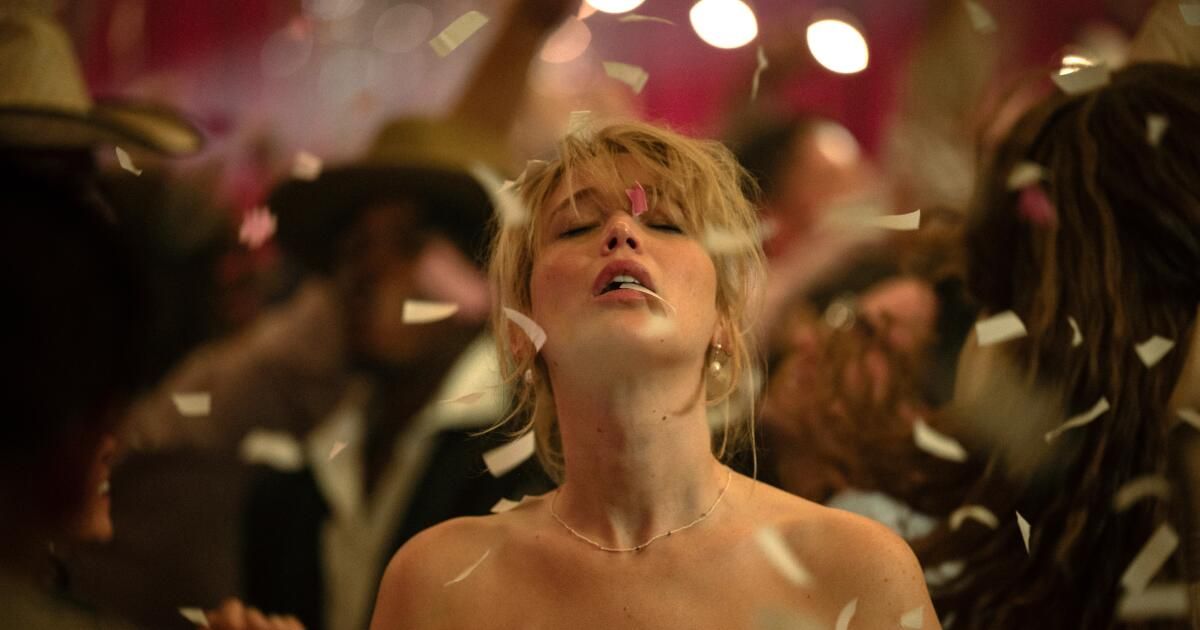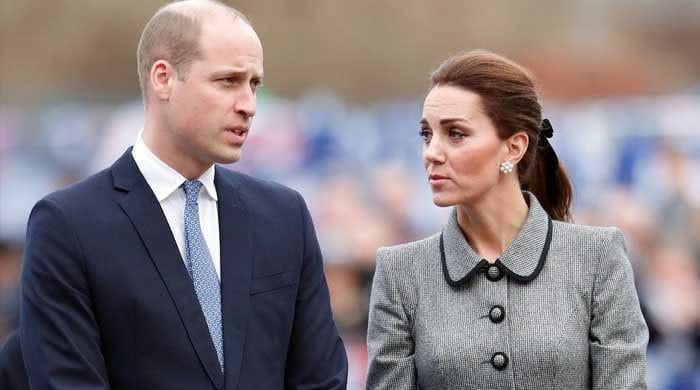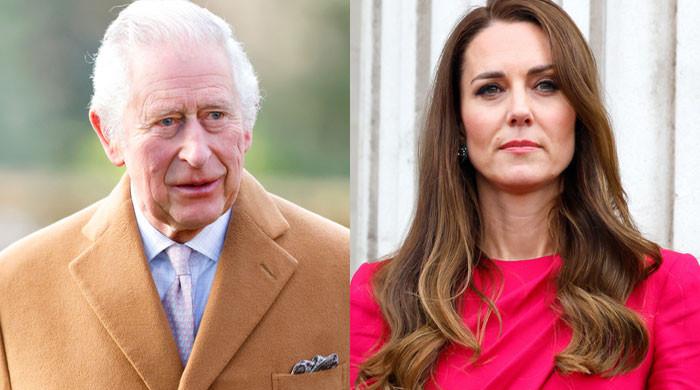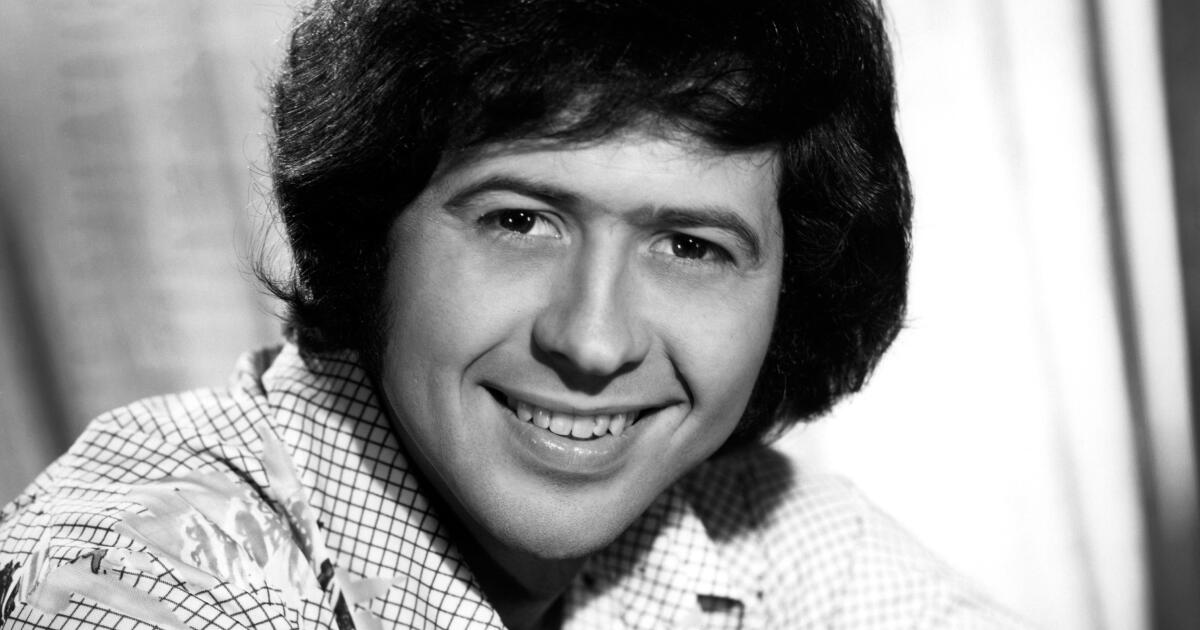The first shot of director Lynne Ramsay's stubborn, infuriating postpartum nightmare, “Die My Love,” would be a great start to a horror movie. The camera lurks in the kitchen of an isolated ranch house, as still and sinister as a ghost, while a couple named Grace and Jackson (Jennifer Lawrence and Robert Pattinson) snoop around the porch of their newly inherited property. It takes several seconds for the two to enter, long enough for us to suspect that these crazy kids are making a dangerous mistake. Just look at the wallpaper. Those flowers would make anyone laugh.
“It's not New York, but it's ours,” Jackson says of the rural house left to him by his uncle, who died violently upstairs, in a way that Grace finds hilarious. He grew up in the area and his parents, Pam and Harry (Sissy Spacek and Nick Nolte), still live nearby. Neither Jackson nor Grace say anything about their past lives in the city, but he longs to play the drums and she once claimed to write. There is a feeling that your dreams have stalled, whether due to finances, passion, or talent. So they move out, have a baby, and descend into domestic chaos.
-
Share via
Lawrence and Pattinson are such a natural and expected pairing that it's a surprise to realize that this is the first time they've teamed up to make the kind of polarizing, prestige film they both enjoy. The two stars launched into the public consciousness around the same time, then followed the same trajectory from teen franchise idols to creatively ambitious stars and now, most recently, fledgling parents making a movie about miserable parents whose hopes have run aground. Lawrence has two children under 3 years old; Pattinson, a little boy. Your kids shouldn't see this movie until college.
In a dynamic montage, Ramsay presents his boyfriend as lustful but strange. Jackson and Grace flirt, fighting like beasts. Caressing, sniffing, biting, wrestling: that's foreplay (and she likes it more than he does). But they can't communicate with words. “If you're not feeling well, maybe we should, like… talk?” Jackson says tentatively to his increasingly restless and unstable partner. Grace is not interested in talking, although from time to time she dares to shout. When they really fight, their bodies writhe in spasms of indignation. And when the other isn't looking, each seems to shut down (Lawrence's Grace physically collapses like an unplugged air dancer), a clue to how much energy they must expend in private to make it work.
“Die My Love,” adapted by Ramsay, Enda Walsh and Alice Birch from the 2012 novel by Argentine author Ariana Harwicz, makes parenthood feel like being handcuffed to a sinking anchor in a swamp. Lawrence's Grace needs help and the more she gets agitated, the worse things get. The book is an interior monologue of poison: “How could a weak and perverse woman like me, someone who dreams with a knife in her hand, be the mother and wife of those two individuals?” the first paragraph boils. But Ramsay refuses to put his anguish into words. Like Joaquin Phoenix in “You Were Never Really Here,” she prefers characters who quietly stir under her skin.
The tension in this house begins quietly, too quietly, with Grace putting on Alvin and the Chipmunks and Raffi children's albums to drown out whatever noise is going on in her head. After Jackson brings home a stray dog, the noise becomes unbearable, and sound designers Tim Burns and Paul Davies skillfully and cruelly ensure that no matter how far Grace wanders, she can still hear the damn thing barking.
Lacking much perspective on Grace, we primarily see a mentally challenged woman outraged that her sexual playtime is over. She howls with the need to mate, skulking around the house in fancy bras and matching thongs that contrast with this scruffy house and its stash of cheap beer. Every once in a while, a mysterious leather-clad biker (LaKeith Stanfield) zooms by, considering a quickie with this bored beauty.
Grace's erotic agony is reductive and a little ridiculous, although I think the script is also trying to imply that Grace herself is focused on the wrong problems. The film depicts his depression by covering the night scenes with so much blue tint that even Picasso might suggest dialing them back. Despite cinematographer Seamus McGarvey's efforts to put us in his headspace with lenses that make the world blur and spin around him, you're more afraid. of grace that for Grace, especially when the shocking editing has her crashing through doors like Michael Myers.
Lawrence throws himself into every scene and puts all his faith in Ramsay. It's not so much a fall of confidence as it is a cannonball of confidence. As good and committed as Lawrence is, there were times when I wanted to rescue her from her own movie, to protect her from the fate of Faye Dunaway when “Mommie Dearest” turned another Oscar-winning blonde into a joke.
However, this is a character who hates pity and I can't help but admire that Ramsay confronts today's falsely optimistic and relatable discourse of motherhood with this boogy mom who remains aloof. Grace treats the older women in her family like a wall of advice not to be heeded, even when they are right. “Everyone goes a little crazy the first year,” Pam says of Spacek, offering empathy that falls on deaf ears. (Spacek delivers a charmingly endearing, layered turn.) And though Grace is so lonely she literally claws at the walls, she rejects any overtures of friendship, whether from a cheerful mother (Sarah Lind) or a cheerful cashier (Saylor McPherson) whose attempts to start a conversation go so wrong that when the poor darling asks Grace if she's found everything she's looking for, Grace snorts: “In life?”
Pattinson has the more recessive role but his performance is so subtle and intelligent that it is worth watching closely. His Jackson is pathetic, passive, and skittish toward his baby's mother, whom he longs to cure and tries to avoid. It has some moments that come so close to comedy (for example, complaining to be let into the bathroom) that one wishes the film would do more to encourage our guttural, painful laughter. The jokes are there, like a moment after a crisis where Jackson admits he's getting really stressed and Grace coldly replies, “About what?”
There's a scene where Grace reveals a snippet of backstory that might explain her psychology, and I think that specificity is a narrative misstep. The powerful thing about Grace is that she howls for all parents, even the happiest ones. Harwicz's book deliberately never gave his character a name.
Even within this film, Grace's anguish is universal. Yes, she goes into the desert at night, but so do her in-laws Harry and Pam, for reasons of their own. There are dark vibes emanating from almost every character, even the minor ones, though Grace is too self-absorbed to take solace in that. But Ramsay is comfortable suggesting that everyone feels crazy and miserable. I suspect she thinks it's the most normal way to live.
'Die my love'
Classified: R, for sexual content, graphic nudity, language and some violent content.
Execution time: 1 hour, 58 minutes
Playing: In wide release on Friday, November 7












